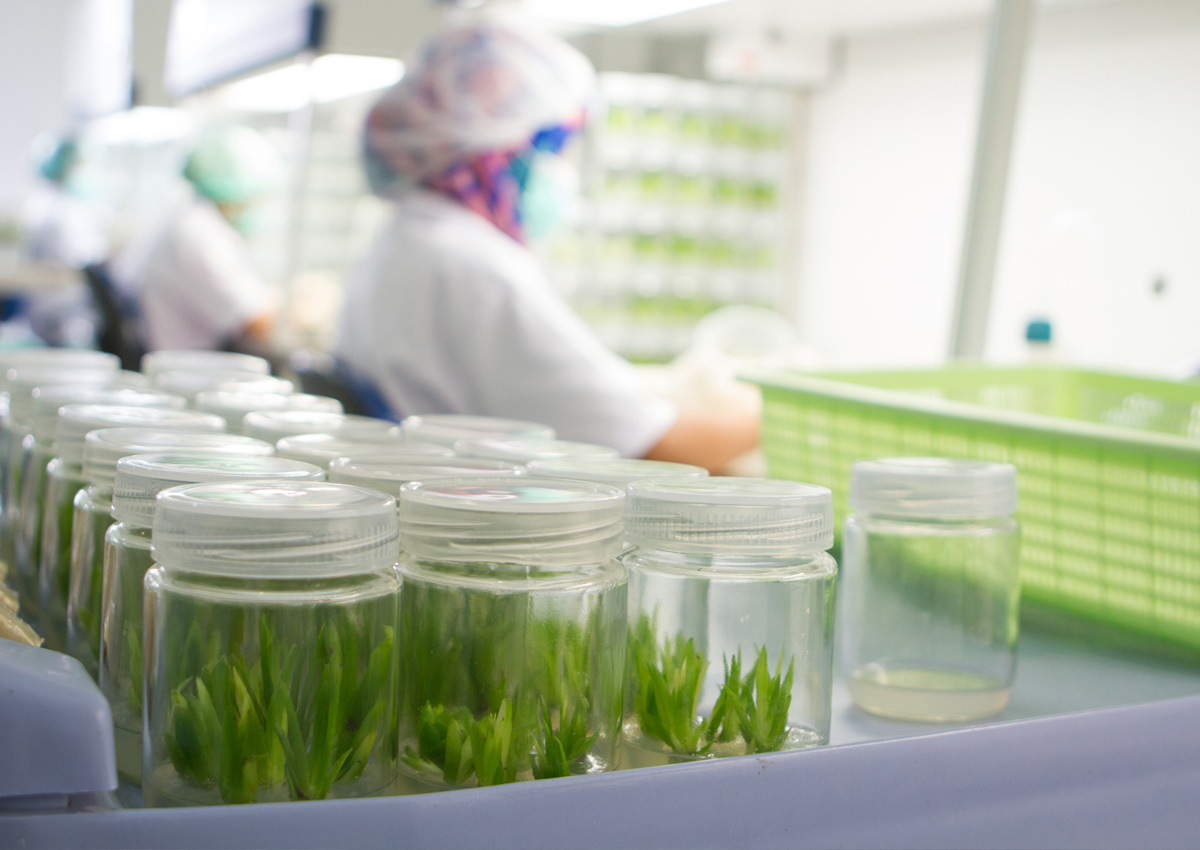
Study Finds Decline in Plant Breeding Programs in the US, Possible Impact on Food Security
August 12, 2020| |
A team of scientists from Washington State University (WSU) led by Kate Evans who leads WSU's pome fruit (apples and pears) breeding program, found that public plant breeding programs are seeing decreases in funding and personnel. The research team conducted a study of 278 plant breeding programs around the United States. These programs are federal programs, such as those run by the U.S. Department of Agriculture, or based at public research universities.
In their survey, respondents estimated a 21.4% decline in full time employee (FTE) time for program leaders over the past five years and an estimated 17.7% decline in FTE time for technical support personnel. The research team also found that a significant number of plant breeding program leaders are due to retire soon. Over a third of the responding programs reported having leaders over the age of 60 and 62% are led by people over 50. Evans said this decline is concerning because plant breeding has a direct impact on food security.
The focus on food security has received more attention in the last few months, as the COVID-19 pandemic has moved around the world, Evans said. One reason that plant breeding programs are declining is expense. Evans explains that it takes many years to develop a new variety of a crop, and funding a program for that long requires significant investment.
For more details about this study, read the open-access paper in Crop Science or the article in WSU Insider.
| |
You might also like:
- Food Security Expert Says COVID-19 Pandemic Calls for Reassessment of Food Systems
- Asian Food Safety Association Conference Tackles Strategies for Food Security
- Study: Food Security Needs More from GM Crops
Biotech Updates is a weekly newsletter of ISAAA, a not-for-profit organization. It is distributed for free to over 22,000 subscribers worldwide to inform them about the key developments in biosciences, especially in biotechnology. Your support will help us in our mission to feed the world with knowledge. You can help by donating as little as $10.
-
See more articles:
-
News from Around the World
- FAO: Global Food Prices Rise in July
- Experts Urged to Consider Audience Values when Communicating about Gene Technologies
- Third Breakthrough Shows Photosynthetic Hacks Boost Yield and Conserve Water
- Study Finds Decline in Plant Breeding Programs in the US, Possible Impact on Food Security
- FSANZ Calls for Comments on Food Derived from GM Corn DP202216
-
Research Highlights
- Punjab-wide Survey of Bt Cotton Fields Reveal Variations in Cry Protein Accumulation
- Researchers Decode Black Mustard Seed Genome Using New Sequencing Technology
-
Plant
- Researchers Review Genome Editing Strategies Used in Developing Rice Disease Resistance
- Kansas State University and University of Saskatchewan Team Up to Improve Wheat Using CRISPR
- CRISPR Dominates Genome Editing Market, TALENs Projected to Grow until 2025
-
Health
- National Survey Says Most Americans Willing to Vaccinate Against COVID-19
- Human Immune System Responds to Plant-derived SARS-CoV-2 Antigens
-
Read the latest: - Biotech Updates (February 18, 2026)
- Gene Editing Supplement (March 4, 2026)
- Gene Drive Supplement (February 22, 2023)
-
Subscribe to BU: - Share
- Tweet

